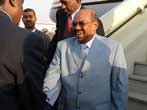Monitoring Sudan's elections: Increasing transparency

In the wake of the Sudanese elections, the Sudanese Group for Democracy and Elections (SuGDE) and the Sudanese Network for Democratic Elections (SuNDE) offer their assessment of the electoral process and the problems associated with the election.
The Sudanese Network for Democratic Elections (SuNDE) and the Sudanese Group for Democracy and Elections (SuGDE) conducted the only coordinated Sudan-wide, non-partisan election-monitoring effort for the April 2010 elections. Together SuGDE in the north and SuNDE in the south received more than 13,500 reports from over 4,300 trained and accredited election observers who were deployed to over 2,000 polling stations across all of Sudan’s 25 states. The two coalitions used a common reporting form for observing key elements of the elections. Observers remained in their polling stations throughout the day and reported through their respective county and state coordinators to data collection and analysis centres for SuNDE in Juba and SuGDE in Khartoum, where the reports were verified for quality and analysed impartially according to standards for non-partisan election observation. SuGDE and SuNDE shared their observations and findings and developed this fact-based statement, released simultaneously at press conferences in Khartoum and Juba respectively.
SuGDE and SuNDE express their most sincere thanks and appreciation to all of their volunteers who dedicated their time to improving the transparency of the electoral process. SuGDE and SuNDE would also like to extend their thanks to the elections officials in the National Elections Commission (NEC), the High Elections Committee of Southern Sudan (SSHEC) and the State High Elections Committees (SHCs) for their cooperation and accreditation of SuNDE and SuGDE observers.
EXECUTIVE SUMMARY
The April 2010 elections were a requirement for moving forward with implementing the Comprehensive Peace Agreement (CPA). However, the elections did not fulfil the Interim Constitution’s and the CPA's aspirations for democratic transition and did not adequately meet the requirements of the National Elections Commission rules and regulations. Sudanese citizens demonstrated without any doubt their desire for democracy through their registering, voting and participating in lively political debate in these elections. Extraordinary efforts are required to achieve democratic governance, and SuNDE and SuGDE will seek to contribute constructively to securing peace and democratic progress. The hopes of citizens should not be allowed to slip away.
* SuNDE and SuGDE observed that the National Elections Commission (NEC) failed to adequately plan and prepare for the elections. The polling stations observed often lacked essential election materials to open on time or ran out of essential materials during the polling process. The inefficiency of the NEC to develop or publiciSe the polling station list and final voters’ lists in a timely manner also caused substantial confusion and potentially the disenfranchisement of a significant number of voters.
* SuGDE and SuNDE observed that while the administration of the elections was deficient throughout Sudan, in Southern Sudan the administration of the elections was observed to be more problematic.
* SuGDE and SuNDE observed several positive aspects to the elections. Voters turned out in large numbers and conducted themselves in a largely peaceful manner. Polling officials showed a strong commitment to fulfilling their responsibilities, particularly given the difficult circumstances. Thousands of citizens volunteered with civic organisations to observe the election and stayed through all seven days of the polling and the counting process.
* SuNDE and SuGDE recognise that this was the first election in Sudan since the signing of the Comprehensive Peace Agreement and understand that the complexity of the electoral process and difficult logistical environment of Sudan made running this election challenging.
* However, SuGDE and SuNDE recorded significant flaws in the election process at the polling stations observed.
* SuNDE recognised that in South Sudan the political parties actively participated in the election. However, SuNDE observers noted a need for parties, candidates and their supporters or agents to better understand their roles in the electoral process, particularly regarding interfering with the polling process.
* SuGDE notes that in the north of Sudan leading political parties boycotted the elections, which deprived citizens of choice and made the elections confusing and less competitive.
* SuNDE was concerned by the troubling number of incidents of intimidation and harassment reported by its observers in South Sudan, particularly by party and candidate agents and supporters, and unknown and unauthorised security personnel.
* SuGDE was concerned by incidents of violence, intimidation and harassment in Southern Kordofan, Western Darfur, Northern Darfur and Sinnar.
* SuGDE and SuNDE are deeply concerned that the electoral process did not meet citizens' expectations and failed to fully embrace democratic principles at the polling stations observed.
* SuNDE and SuGDE urge all election stakeholders to learn from these elections and apply those lessons to improve the transparency and credibility of future elections, including the 2011 referendum.
SuGDE and SuNDE offer 24 recommendations, which are presented in the full elections statement.
BROUGHT TO YOU BY PAMBAZUKA NEWS
* The full statement on the elections from the Sudanese Group for Democracy and Elections (SuGDE) and the Sudanese Network for Democratic Elections (SuNDE) is available here.
* Please send comments to [email protected] or comment online at Pambazuka News.
